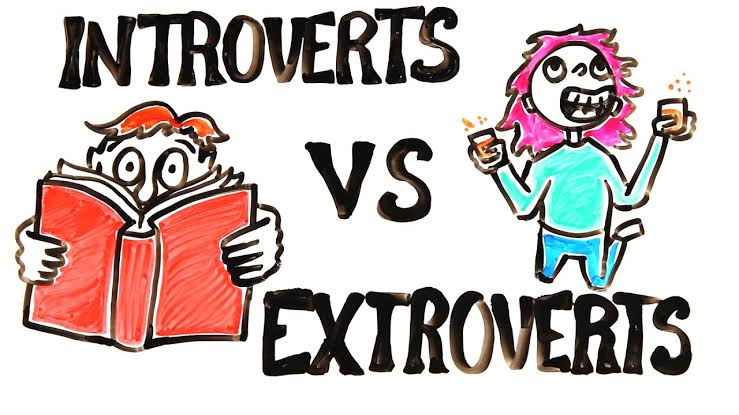Many people aren’t strictly introverted or extroverted but usually fall somewhere in the middle, also known as ambiverts. If you’re trying to figure out which side you lean on more, introverts tend to feel drained after a lot of socializing while extroverts tend to feel charged up and energized.
Recognizing who and what you are helps you navigate things better in different environments. The terms are the brainchild of world famous Swiss psychiatrist Carl Jung and is a reference point for how people focus their energy.
Generally speaking introverts direct their energy inward towards introspection and their own thoughts while extroverts tend to direct their energy outward towards other people and their environment.
Unfortunately stereotypes often present introverts as socially inept wallflowers and extroverts as boisterous, loud and overly assertive.
The reality isn’t as simple.
Here’s a quick way of ascertaining who you are
Introverts feel most energized when alone and often need rest from social situations to recalibrate or gather themselves despite the fact that they do value socialising and people.
They often like smaller more intimate gatherings, find alone time meaningful and enjoyable and like to process things internally before sharing thoughts and reactions. They also like to not be too heavily booked on the social calendar to prevent overstimulation. Introverts often have deeper bonds but with less people and need downtime after a social outing.
Plus points include being more thoughtful as they have good listening and observational skills and are less impulsive. However they can at times be socially awkward and also have difficulty regulating emotions as they turn inward to process negative feelings.
Extroverts thrive on connection. They place great importance on social relationships though they may still occasionally like alone time. They also have a tendency to think out loud.
They feel energized with people, and have a strong desire to communicate with someone when something important occurs in their life. They prefer working in groups then independently and are extremely comfortable talking to strangers. Even their hobbies involve social interaction such as joining clubs and societies that involve socialising.
Generally extroverts are great at networking, have plenty of social support and find it easy to forge connections in any situation. The downside of this however is they build less close knit relationship and tend to have shallower bonds. They are also less skilled at listening as they are often too busy talking and sharing their own thoughts and feelings. Extroverts also have a tendency to become domineering in conflict situations.
A person who has a balanced mix of both of the above traits is an ambivert. The ambivert is a combination of both extroversion and introversion. They are also more socially agile, functioning well both alone and in company. The biggest disadvantage of being an ambivert is a tendency toward becoming hyper focused on doing and saying the right thing to make sure everyone around is comfortable which is extremely tiring.

